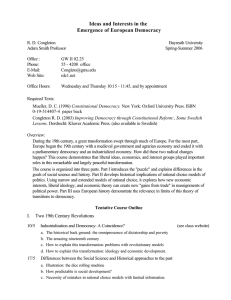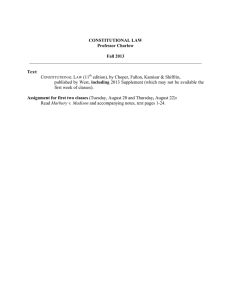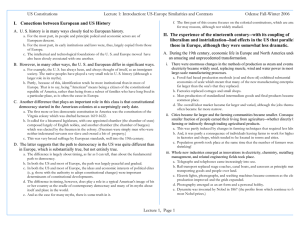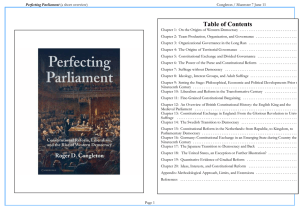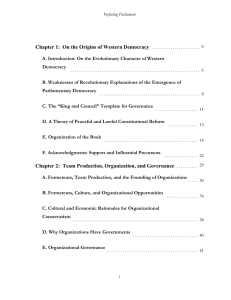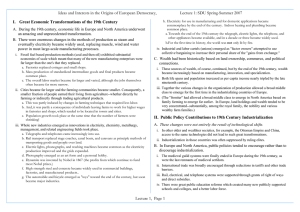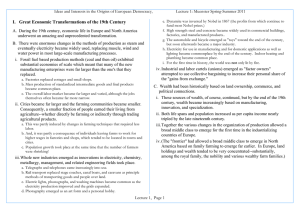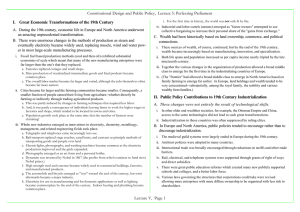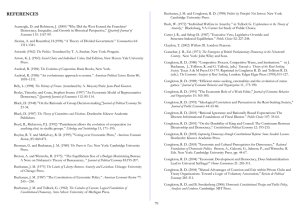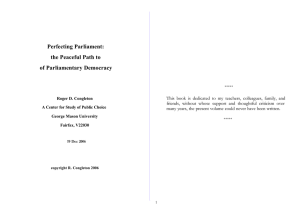Constitutional Political Economy and Western Democracy
advertisement
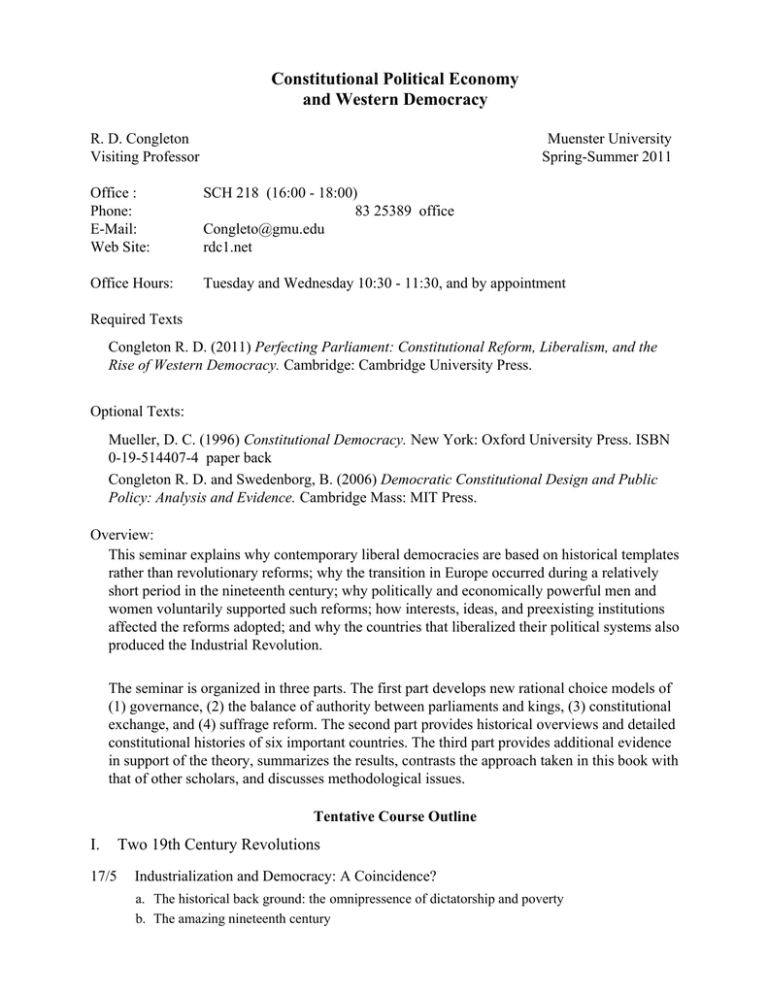
Constitutional Political Economy and Western Democracy R. D. Congleton Visiting Professor Muenster University Spring-Summer 2011 Office : Phone: E-Mail: Web Site: SCH 218 (16:00 - 18:00) 83 25389 office Congleto@gmu.edu rdc1.net Office Hours: Tuesday and Wednesday 10:30 - 11:30, and by appointment Required Texts Congleton R. D. (2011) Perfecting Parliament: Constitutional Reform, Liberalism, and the Rise of Western Democracy. Cambridge: Cambridge University Press. Optional Texts: Mueller, D. C. (1996) Constitutional Democracy. New York: Oxford University Press. ISBN 0-19-514407-4 paper back Congleton R. D. and Swedenborg, B. (2006) Democratic Constitutional Design and Public Policy: Analysis and Evidence. Cambridge Mass: MIT Press. Overview: This seminar explains why contemporary liberal democracies are based on historical templates rather than revolutionary reforms; why the transition in Europe occurred during a relatively short period in the nineteenth century; why politically and economically powerful men and women voluntarily supported such reforms; how interests, ideas, and preexisting institutions affected the reforms adopted; and why the countries that liberalized their political systems also produced the Industrial Revolution. The seminar is organized in three parts. The first part develops new rational choice models of (1) governance, (2) the balance of authority between parliaments and kings, (3) constitutional exchange, and (4) suffrage reform. The second part provides historical overviews and detailed constitutional histories of six important countries. The third part provides additional evidence in support of the theory, summarizes the results, contrasts the approach taken in this book with that of other scholars, and discusses methodological issues. Tentative Course Outline I. 17/5 Two 19th Century Revolutions Industrialization and Democracy: A Coincidence? a. The historical back ground: the omnipressence of dictatorship and poverty b. The amazing nineteenth century c. How to explain this transformation: problems with revolutionary models d. How to explain this transformation: ideology and economic development. 18/5 Differences between the Social Science and Historical approaches to the past a. Illustration: the dice rolling machine b. How predictable is social development? c. Necessity of mistakes in rational choice models with limited information. II. Analytical History: Models of Peaceful Constitutional Reform 23/5 The origins of organizations and organizational governance. a. Team production and artificial incentive systems. b. Incentives to organize teams c. The necessity of organizational governments. 24/5 The “king and council” template for governance a. Informational dilemmas and the value added by advisory councils b. Authority as a good that can be traded c. The possibilities for constitutional exchange within the king and council template.. 31/5 Constitutional exchange and the balance of authority between king and parliament a. A historically important division of authority: the power of the purse b. The comparative statics of the demand and supply of tax resources c. Trading tax resources for authority 7/6 Choosing Members of Parliament a. By interest group (not class) b. Through (wealth) limited suffrage c. First past the post elections and the median voter 14/6 Expanding Suffrage, a Slippery Slope? a. The median voter's demand for suffrage reform. b. Suffrage is not an ordinary superior good. c. Beyond narrow self interest, a demand for the good society? 21/6 Suffrage movements: Persuasion or threats a. The Leveler Agenda? b. Economic and Political "liberals" c. Persuasion and the demand for suffrage III. Case Histories as Tests of a Theory 28/6 Illustration: the British Case 5/7 Illustrations: the Dutch and Swedish Cases 12/7 Parallel developments in Germany, and Japan 19/7 Illustrations: the United States 26/7 Conclusion and Overview Grades: Term Paper (100%)
